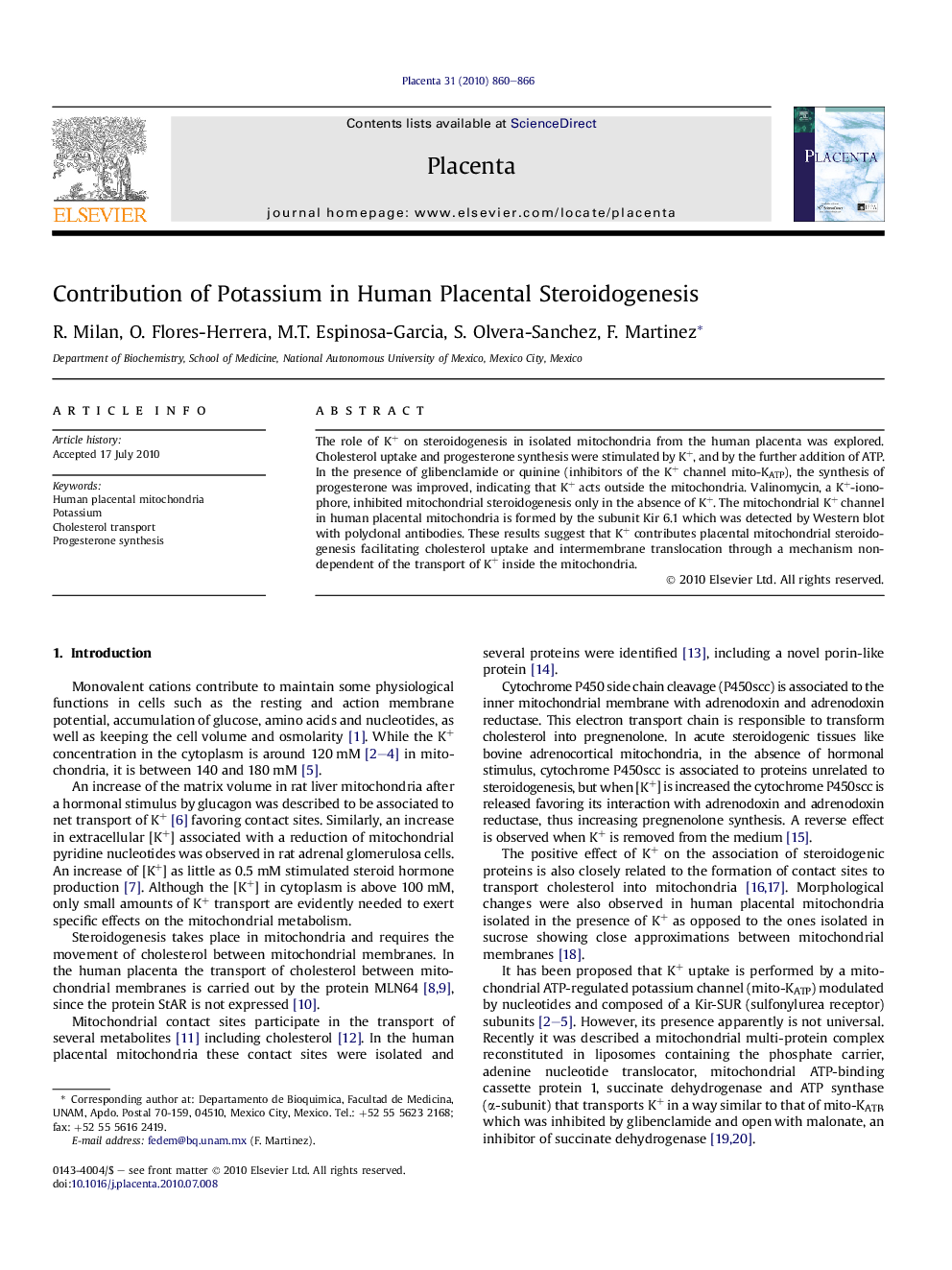| Article ID | Journal | Published Year | Pages | File Type |
|---|---|---|---|---|
| 2789903 | Placenta | 2010 | 7 Pages |
Abstract
The role of K+ on steroidogenesis in isolated mitochondria from the human placenta was explored. Cholesterol uptake and progesterone synthesis were stimulated by K+, and by the further addition of ATP. In the presence of glibenclamide or quinine (inhibitors of the K+ channel mito-KATP), the synthesis of progesterone was improved, indicating that K+ acts outside the mitochondria. Valinomycin, a K+-ionophore, inhibited mitochondrial steroidogenesis only in the absence of K+. The mitochondrial K+ channel in human placental mitochondria is formed by the subunit Kir 6.1 which was detected by Western blot with polyclonal antibodies. These results suggest that K+ contributes placental mitochondrial steroidogenesis facilitating cholesterol uptake and intermembrane translocation through a mechanism non-dependent of the transport of K+ inside the mitochondria.
Related Topics
Life Sciences
Biochemistry, Genetics and Molecular Biology
Developmental Biology
Authors
R. Milan, O. Flores-Herrera, M.T. Espinosa-Garcia, S. Olvera-Sanchez, F. Martinez,
